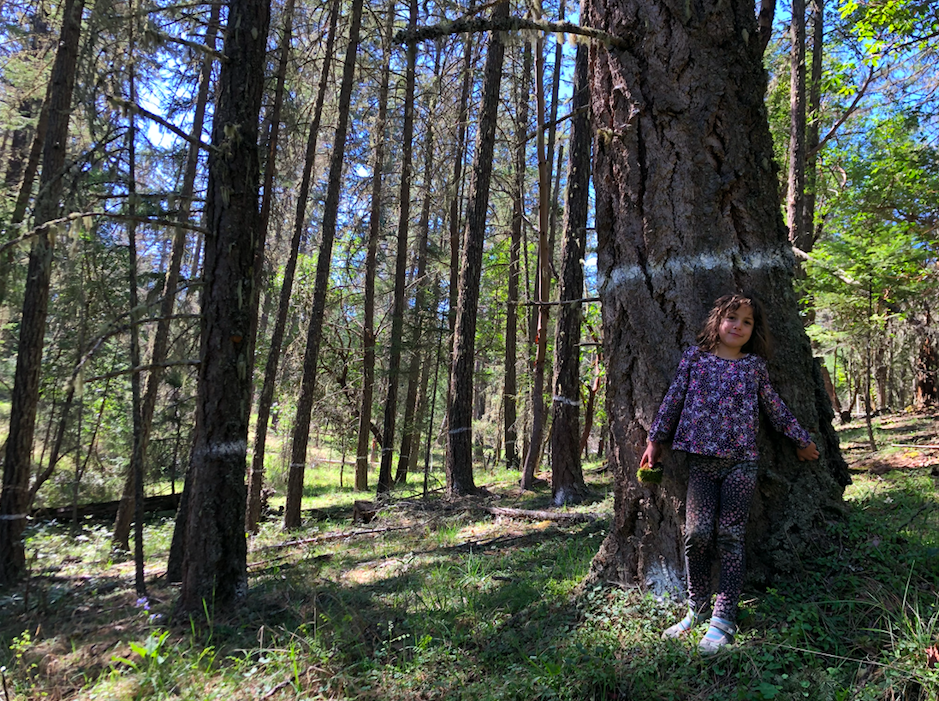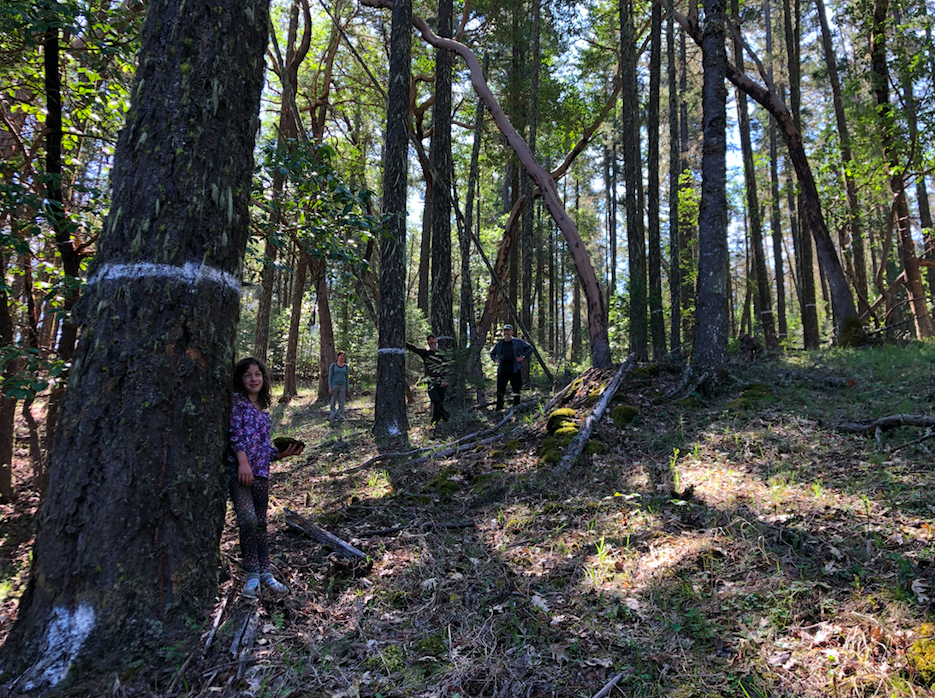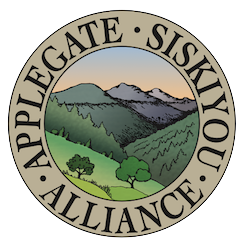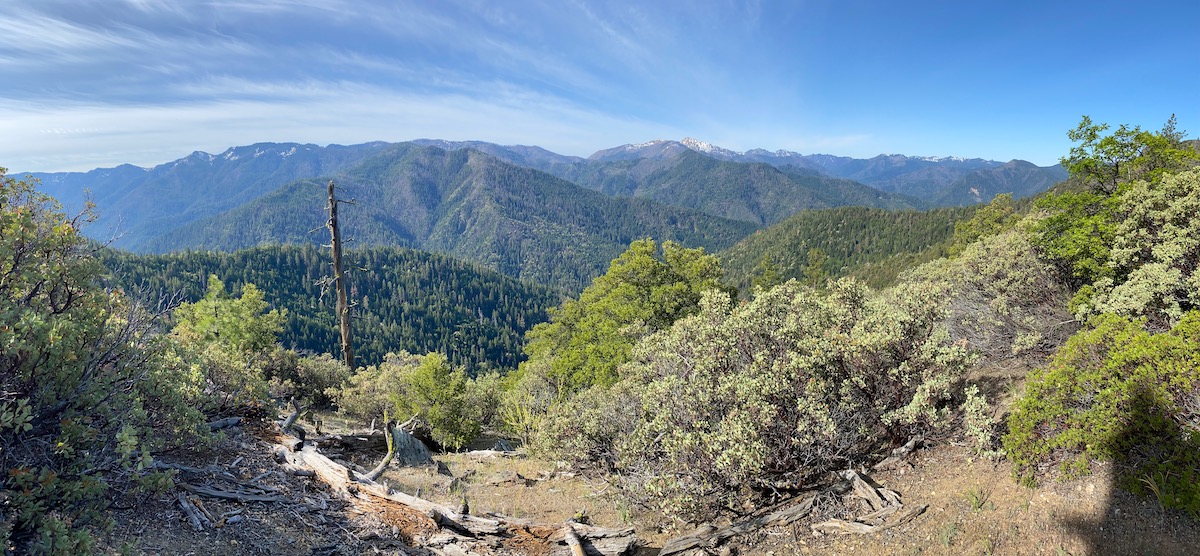
Applegate Neighborhood Network has been working with allies across the community and with the Klamath Forest Alliance to organize in opposition to the Bear Grub Timber Sale. One of the biggest concerns of local residents and affected landowners pertains to the increase in fire hazards associated with both group selection logging and heavy commercial thinning in the Bear Grub Timber Sale Planning Area.
The logging treatments proposed in the Bear Grub Timber Sale would remove hundreds, if not thousands of mature, fire resistant trees. These large, old trees support characteristics that significantly increase fire resistance, such as thick insulating bark, high canopies (e.g. crown base height) and closed canopy conditions. Once lost, the reestablishment of these conditions will take many decades to regenerate or restore, especially in the drier, more interior portions of the Applegate River Watershed.
Those who intimately know this region, know that any reduction in canopy cover will encourage additional, fire available fuel loading in the form of young, highly flammable vegetation (e.g. young trees and shrubs). The loss of canopy will also lead to more severe, fast moving wildfires by reducing canopy shade, drying out forested stands, increasing the development of fine fuels, regenerating dense woody understory growth, and by increasing wind speeds within affected stands.

After realizing what the Bear Grub Timber Sale would do to our forests and communities in the Applegate Watershed, ANN decided to analyze the impact that currently proposed or approved timber sales would have throughout the Medford District BLM and across Southwestern Oregon. Together with Klamath Forest Alliance we researched recently approved and proposed timber sales on lands across the Medford District BLM. What we found was unfortunate, but not necessarily surprising. According to BLM’s own analysis, the majority of the commercial logging currently approved can be expected to increase fire hazards for at least 20 years. In fact, since implementation of the BLM’s 2016 Resource Management Plan, 66% of the acreage approved for commercial logging will result in increased fire hazards and risks.
As residents of Southwestern Oregon we do not believe our public forests or our communities should be threatened with increased fire hazards and decreased forest resilience for short-term timber industry profits. We ask that residents of Southwestern Oregon contact their public officials and demand that the Bear Grub Timber Sale be canceled. We also ask that commercial logging methods such as group selection logging, regeneration logging and heavy commercial thinning that significantly reduce canopy cover and increase fire risks be discontinued on public lands.
At ANN we work hard to protect, defend and restore our local watersheds, but we also work to understand how that relates to the bigger picture, and that is what this report is all about.
Read the Full Report Here
Medford District BLM Fire/Fuel Analysis for Timber Sales Authorized Under the 2016 Resource Management Plan for Southwestern Oregon.
Contacts:
Elizabeth Burghard, Medford District BLM, District Manager:
eburghar@blm.gov
Malcolm McGeary, Natural Resource Director for Senator Wyden:
Malcolm_McGeary@wyden.senate.gov
Amy Amrhein, Southwestern Oregon Staff for Senator Merkley
Amy_Amrhein@merkley.senate.gov




